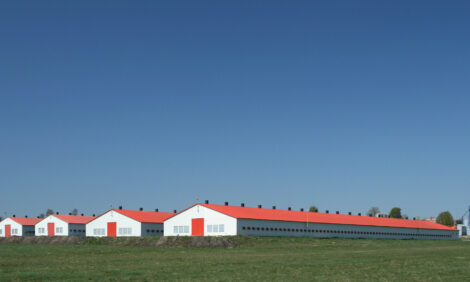



Dutch poultry farm to raise male layer chicks
The move aims to end chick cullingDutch specialty egg producer Kipster is ending the habit of culling male chicks by letting the brothers of egg-layers grow up to become an alternative meat source, the company said in a recent press release.
In the US alone, around 300 million male chicks are killed every year in the egg industry. It’s basic biology: when layer hens are born, an equal number of roosters are also destined to hatch. Unfortunately, these male chicks are discarded as if they are worthless since they do not – obviously – lay eggs. They are also leaner and do not gain weight as efficiently as their cousins in the meat industry.
It is an inconvenient truth that 50% of all newborn chicks in the U.S. are killed as part of egg production. In the coming weeks, the first Kipster roosters will reach 15 weeks of age (traditional meat broilers live around 6 weeks). These American roosters will then be processed into meat products for humans. Kipster, a newcomer to the US egg market, is not willing to wait until technological solutions become available that can identify and kill males while they are still in the egg. Instead, they are raising them.
"We are taking our responsibility now. We let the roosters live. If people choose to eat chicken, then why not the rooster brothers of our hens?" said Sandra Vijn, Kipster. “As a result, fewer broilers will be needed for meat.”
According to the Kipster press release, roosters and spent hens from egg farmers are an untapped source of meat. Layer hens become meat after around 90 weeks after their laying period ends. One pound of rooster and hen meat can replace one pound of broiler meat.
“The conventional egg industry has justified everything from immobilising hens in cages to destroying millions of newborn chicks as the cost of doing business," said Nancy Roulston, Senior Director of Corporate Policy and Animal Science, ASPCA. "Kipster’s welfare-centered approach to egg production shows that suffering is not an inevitability when businesses marry compassion with innovation. The ASPCA hopes that food companies recognize the incredible opportunity Kipster offers to improve animal welfare in their supply chains.”
The layer is a marathon runner: she needs to lay as many eggs as possible for as long as possible. Broilers are more sprinters: they need to gain as much weight as possible in the least amount of time. Layers and roosters carry little meat on their bones. That makes meat from the egg industry considerably more expensive.
“Currently almost all male layer chicks in the United States are placed in a macerator immediately after hatching, where they are ground up and killed," said Hillary Dalton, Senior Research Manager, Compassion in World Farming. "Their painful and inhumane deaths represent an immense amount of unnecessary suffering and a waste of resources to incubate millions of eggs of unwanted male chicks."
"Compassion in World Farming USA believes both male roosters and laying hens deserve the opportunity to have full and enriched lives," Dalton added. "We are thrilled to see Kipster’s expansion into the United States and their pioneering efforts to eliminate the greatest welfare and waste problems in the US laying hen industry.”









